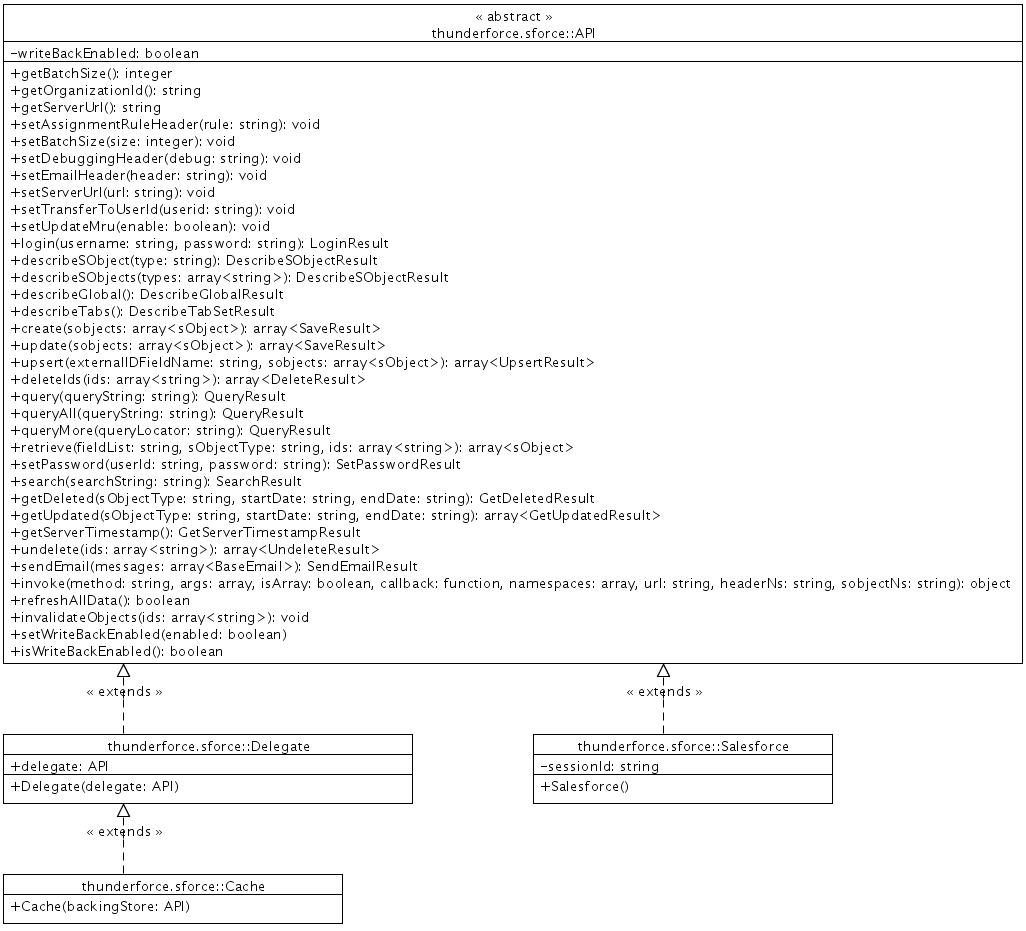Notional architecture
This page includes the details of the notional architecture.
Deployment View
Runtime View
The arrows in this diagram indicate the direction of Salesforce.com data flow, excluding control information.
Module View
Package thunderforce.sforce
The diagram above depicts how the data layer components relate to each other. They all extend from the API abstract class, which includes methods from the Salesforce.com AJAX toolkit. A general write-back flag is included to tell an API implementer to return as quickly as possible and update its backing store later instead of synchronously. The cache object will use the write-back flag to signal offline mode so that changes are logged for an eventual commit to Salesforce.com. When write-back is off, write-through caching is implemented in the cache, and the cache signals an immediate update to the appropriate listeners (not depicted in the diagram yet). Updates from the backing store that do not change what was in the cache do not propagate up, which prevents duplicate updates when the cache is in write-through mode.

